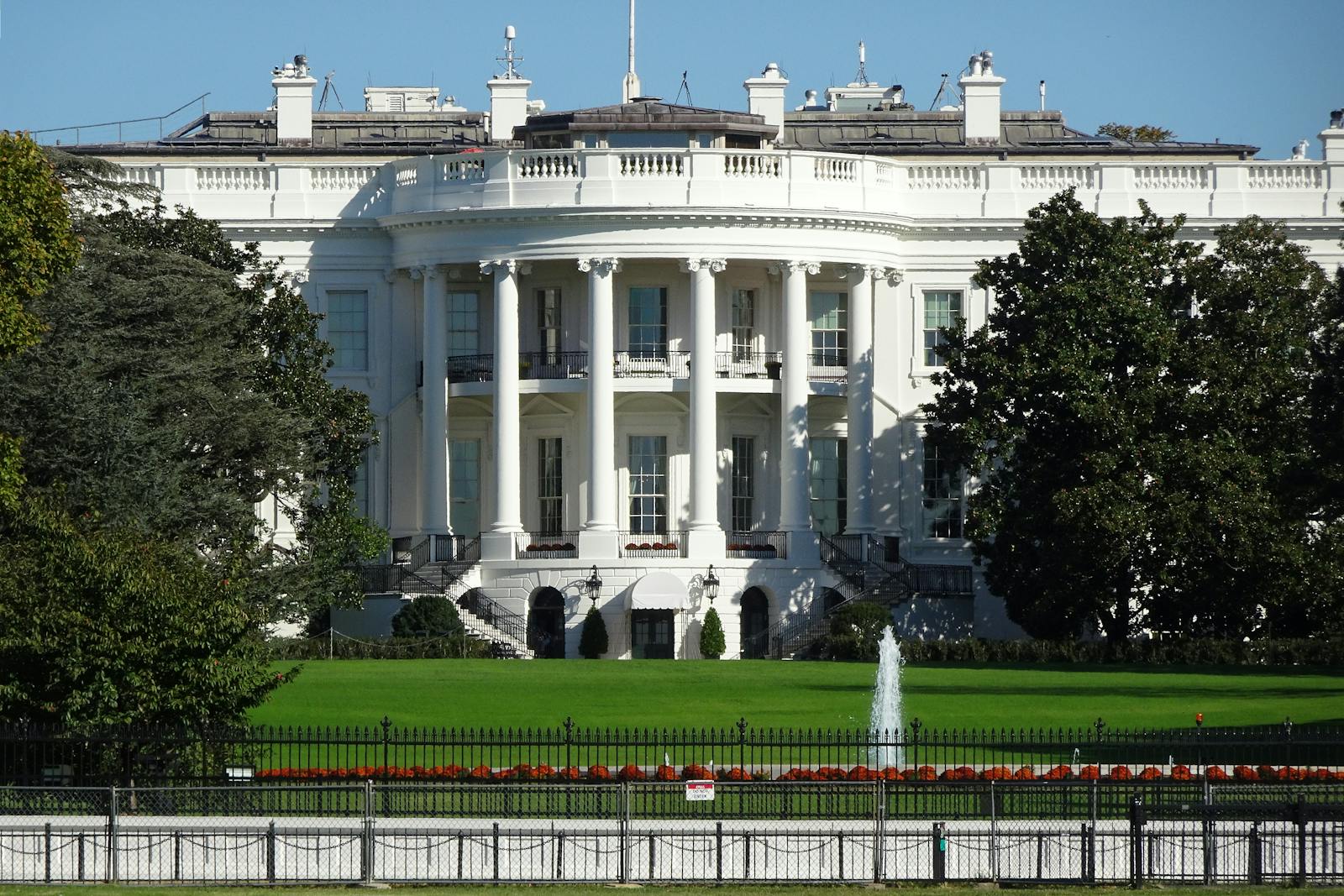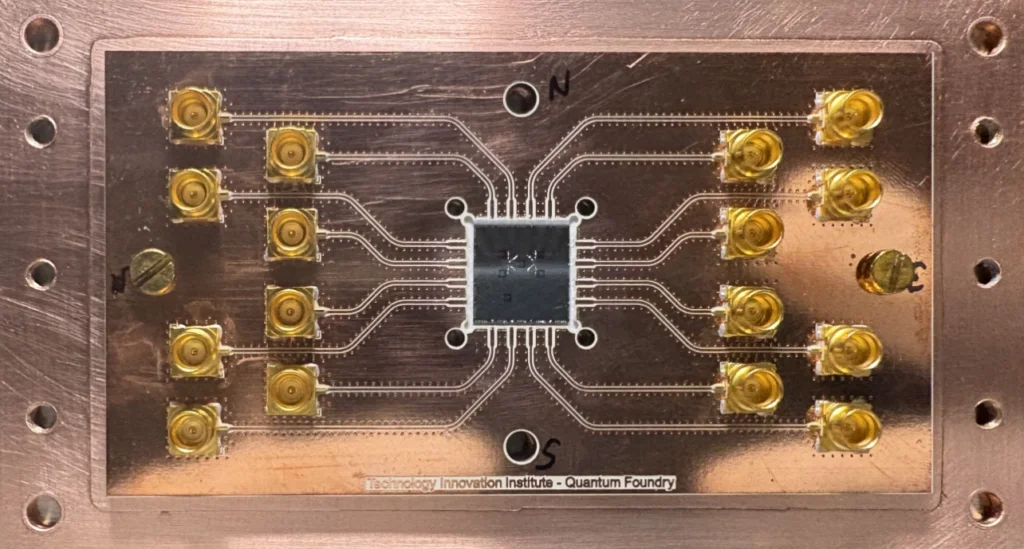Insider Brief
- The U.S. government is reportedly in talks with several quantum-computing companies, including IonQ, Rigetti, and D-Wave, to take equity stakes in exchange for at least $10 million in federal funding per firm.
- The proposed arrangement, still unconfirmed, would mark a rare shift toward direct government ownership in private technology firms, raising both hopes of accelerating innovation and concerns about market interference and oversight.
- The reported discussions come amid heightened global competition in quantum technology and volatile trading in quantum stocks, which surged following the news despite official statements that no deals have been finalized.
The U.S. government is negotiating with several quantum‐computing firms to acquire equity shares in exchange for federal funding, a move that could reshape public‐private partnerships in emerging technologies and bolster the nation’s quantum leadership, Reuters is reporting based on a Wall Street Journal report.
Although not confirmed, reports suggest that the Trump administration is in talks with companies including IonQ, Rigetti Computing and D‑Wave Quantum to become shareholders as part of funding agreements. In each case, the discussions reportedly contemplate a minimum federal funding award of around $10 million per company in exchange for equity, according to Reuters.
The initiative, if finalized, signals the administration’s growing willingness to use direct investment alongside traditional grants and contracts in key technology sectors. It would represent one of the first times the federal government has sought an ownership stake in domestic quantum‐computing firms, Reuters reports.

The potential move follows other interventions by Washington. Earlier this year, for example, the U.S. said it would take a roughly 10% stake in Intel by converting government grants into equity.
Not Confirmed
It should be noted that a Commerce official stated that it is not currently negotiating with any of the companies named in the report. Reuters reported that it could not independently verify the deal details at this time.
However, if it goes through, the reported structure calls for each company to receive funding of at least $10 million from the federal government and, in return, grant the government equity, essentially shares in the company. The discussions reportedly involve the U.S. Department of Commerce and are being led by Paul Dabbar, a former quantum‐computing executive and Department of Energy official. While names such as IonQ, Rigetti and D-Wave are the frontrunners, other firms including Quantum Computing Inc. and Atom Computing are reportedly considering similar arrangements.
According to StockTwits, the funds would be administered by the Commerce Department’s CHIPS Research and Development Office. Deputy Commerce Secretary Paul Dabbar is a former quantum computing executive, who was the co-founder and former CEO of Bohr Quantum Technology, a quantum networking firm spun out of Caltech.
Essentially, then, the government would provide funding to advance the development of quantum computers — devices that exploit quantum‐mechanical phenomena, such as superposition and entanglement, to perform certain calculations much faster than conventional computers — and in return gain a seat at the corporate table.
Quantum computing, long considered a technology that was perpetually 25 years away, is now gaining traction both scientifically and commercially. Major technology firms such as Google and IBM recently announced landmark upgrades that suggest practical uses may be closer than previously thought. For example, just yesterday (Oct. 22) Google Quantum AI announced an algorithmic advance that allowed its 65-qubit processor performed a complex physics simulation 13,000 times faster than the Frontier supercomputer.
The government‐industry funding tie‐up reflects a global urgency that surrounds quantum tech. With computing power that could one day accelerate drug discovery, material science and artificial intelligence, as well as serve as an engine for dual-use applications, such as non-satellite navigation and cryptography, quantum is increasingly viewed as a national‐security and economic imperative.
Implications
If completed, the arrangement would signal a new era in U.S. tech investment, one that advocates say could accelerate innovation but that detractors warn risks entangling public capital with private markets. For example, private firms may face new expectations around government oversight, national‐security reviews and potential restrictions on foreign collaborations. Firms may also gain an advantage from the backing of federal funds and the implicit endorsement that comes with them.
For investors and public markets, the move could raise complex issues. Companies with government shareholders may be subject to additional constraints, and the hybrid public‐private ownership model could raise questions about governance, exit strategies and valuation.
From a geopolitical standpoint, the initiative shows the ever-intensifying race for quantum supremacy. Countries such as China and European nations are actively investing in quantum technologies. The U.S. strategy signals that it will not cede leadership in this space.
Concerns remain about the deal. Quantum computing remains technically challenging, with major hurdles in error correction, scaling qubits and maintaining coherence. Even industry insiders disagree on how soon the technology will deliver broadly useful applications. A misstep or slower than expected progress could leave the government holding stakes in companies still years away from commercial maturity.
There is also the question of precedent: government equity in private technology companies is rare in the U.S. and may raise questions about the role of public funds, the proper relationship between regulators and companies, and the potential for market distortion. Congressional or regulatory scrutiny may increase.
Market Reactions
The announcement came at a pivotal moment for quantum stocks, which have been in a sharp pullback after a rapid rally that recently sent the sector to new highs. According to Stocktwits, several quantum and quantum-related stocks saw double-digit gains after the announcement:
- Rigetti: +15.6%
- D-Wave: +16.3%
- Quantum Computing: +12.8%
- IonQ: +14.7%
- SEALSQ: +15%
- Churchill Capital Corp: +9%
Future Moves
Investors and quantum advocates should be cautious. The talks appear to be in the early stages and could encounter legal, political, and logistical hurdles before taking shape.
In the near term, then, the focus will likely be on whether the companies in question formalize terms, how much equity is offered, what rights the government acquires (board seats, veto rights, “golden shares”?) and how the return on investment is measured. The firms will likely seek to balance the prestige and potential capital of a federal backer with the independence and flexibility they currently enjoy.
Longer term, the strategy may expand: if this model is successful, the administration may apply it to other critical tech areas — such as artificial intelligence, semiconductors or energy storage — as part of a broader “whole‐of‐government” push to influence technological leadership.















